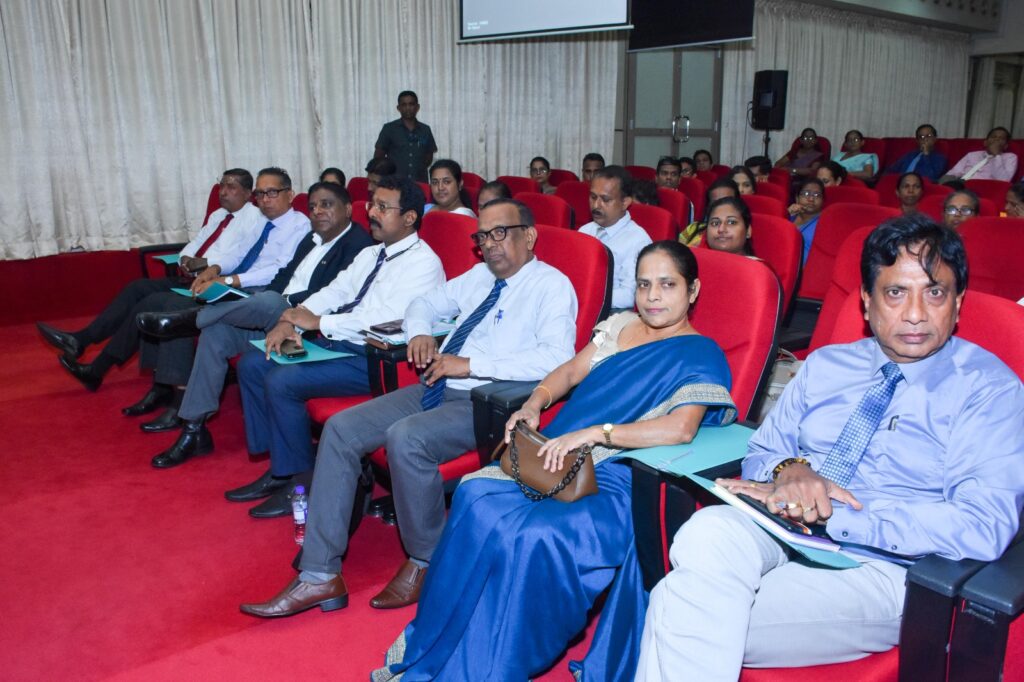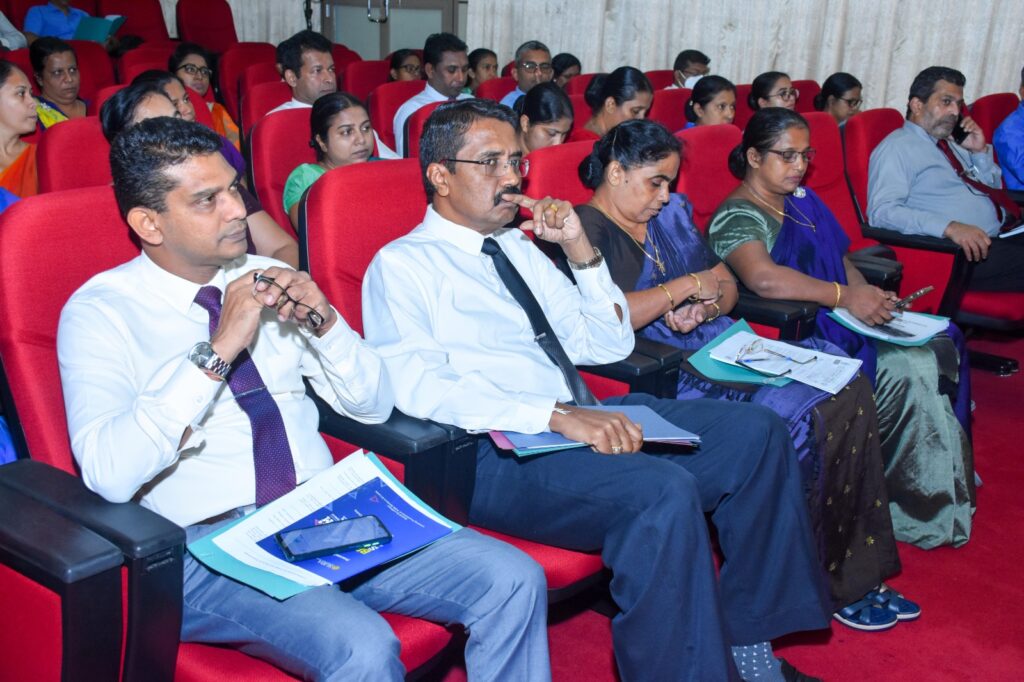
Development of a Vocational Education and Training (VET) Plan for the Western Province
The primary goal of developing a VET plan for the Western province is to identify the demand for and supply of skills needs within the context of the province’s large-scale development work, as well as to ensure the availability of trained human resources for the province’s growing economic sectors. Also, this VET plan is expected to assist the youth in the province to realize their career aspiration.
The following key activities were carried out during the process of developing the VET plan for the Western Province:
- Analyzing socio-economic trends in key industry sectors (Manufacturing, ICT, Construction, Hotel and Tourism) across three Districts.
- Identify the demand and supply of skilled personnel in the major industry sectors within the Province.
- Identify skill gaps for the major industry sectors and livelihood occupations.
- Propose a five-year plan to address the identified skill gaps in occupations.
- Identify and address supply-side labour market issues.
VET plan for the Western province was prepared by the Tertiary and Vocational Education Commission as it’s ninth (09th) provincial VET plan and was prepared at the request of the Governor of the Western province and under the direction of the relevant provincial Ministries.
In consideration of the On-going and future Development in the Province, especially with the Government’s initiatives in the Western Province; Western Mega-polis Plan , the Port-city development, Expansion of Katunayake Airport – Opening of the Dedicated Access Road to the Passenger Terminal of Bandaranaike International Airport (BIA) and Kadawatha –Meerigama Expressway are predicted to drive the economy to remarkable growth rates. The province’s economic growth will necessitate the employment of more and diverse skilled workers. This provincial VET plan will help provide direction for training providers operating in the province and establish an integrated program for the development of its TVET system, allowing effective management of challenges in providing the skilled human resources required to man the province’s vibrant economic activities.
The Key Highlights of the TVET Sector:
- A majority of the employers in the major industry sectors highlighted the importance of soft skills, as well as attitude, personality, and commitment. Employers are of the view that these skills should be effectively developed at the technical and vocational educational centers to align with demands of the industry environment.
- The majority of manufacturing industries utilize semi-automated and automated technology trends. Therefore, the crucial requirement for vocational centers to provide and enhance their technical and vocational training programs to up-to-date with the latest technology trends that align with the current industrial requirements.
- Hotel sector emphasized the importance of English language proficiency and soft skills, noting that these abilities should be effectively developed at technical and vocational educational centers. In Tourism and Hotel sector language development is essential for effective interaction with both local and foreign customers, aligning with the environment of star-category hotels.
- In almost all the industrial sectors, Multi-tasking abilities coupled with latest technology application is considered a vital skill. Therefore, it is vital for TVET centers to provide and enhance their technical and vocational training programs ensuring the up-to-date latest technological trends that align with the present technological requirements of the major industries.
- In ICT sector, around 50 percent of the industries utilize UI / UX Programmer, AI and Machine Learning, Internet of Things (IOT) and Cyber Security technology trends. Consequently, it is crucial for technical and vocational centers to continually update and enhance their training programs to align with these technological requirements of ICT industry.
- Inclusion of knowledge and skill development regarding recent changes in Construction industry such as utilization of Precast Construction Technology / Modular Construction, Pre-Engineering / Pre-Fabricated Building System / Steel Construction, Computer Aided Programing System and Load bearing masonry wall construction technology trends is crucial in vocational training program.
- Though in the ICT industry, the demand is towards more professional jobs, such as Software Developer, Software Engineer, Web Developer, etc., which require degree level educational qualification, in the technical and vocational training sector, high-demand courses are certificate-level computer courses such as Computer Application Assistant, ICT Technician, etc. Therefore, there is an identifiable requirement to upgrade the skill level gap and mismatches by enhancing technical and vocational programs up to the degree level to align with the industry demand.
A workshop was conducted on 2024.11.26 at the main auditorium of the Western Provincial Council with the honored participation of the governor of the Western Province to validate the provincial VET plan prepared for the Western Province with the participation of the relevant stakeholders, including employers of major industries established in the province.
Employers of the developing major industries such as ICT, Hotel & Tourism, Construction and Manufacturing expressed their concerns on the anticipated level of technical and vocational development they seek in new employees and the behavioral changes as well. This raised awareness on the changes required in technical, innovative and behavioral development that required to be included in the vocational training programs conducted by the various institutions in the Western Province including the TVET centers in the province.
After giving due consideration towards the new proposals presented, a consensus was reached between all the relevant stakeholders to revise the Western Province Vocational Education and Training (VET) plan by including the necessary changes.













